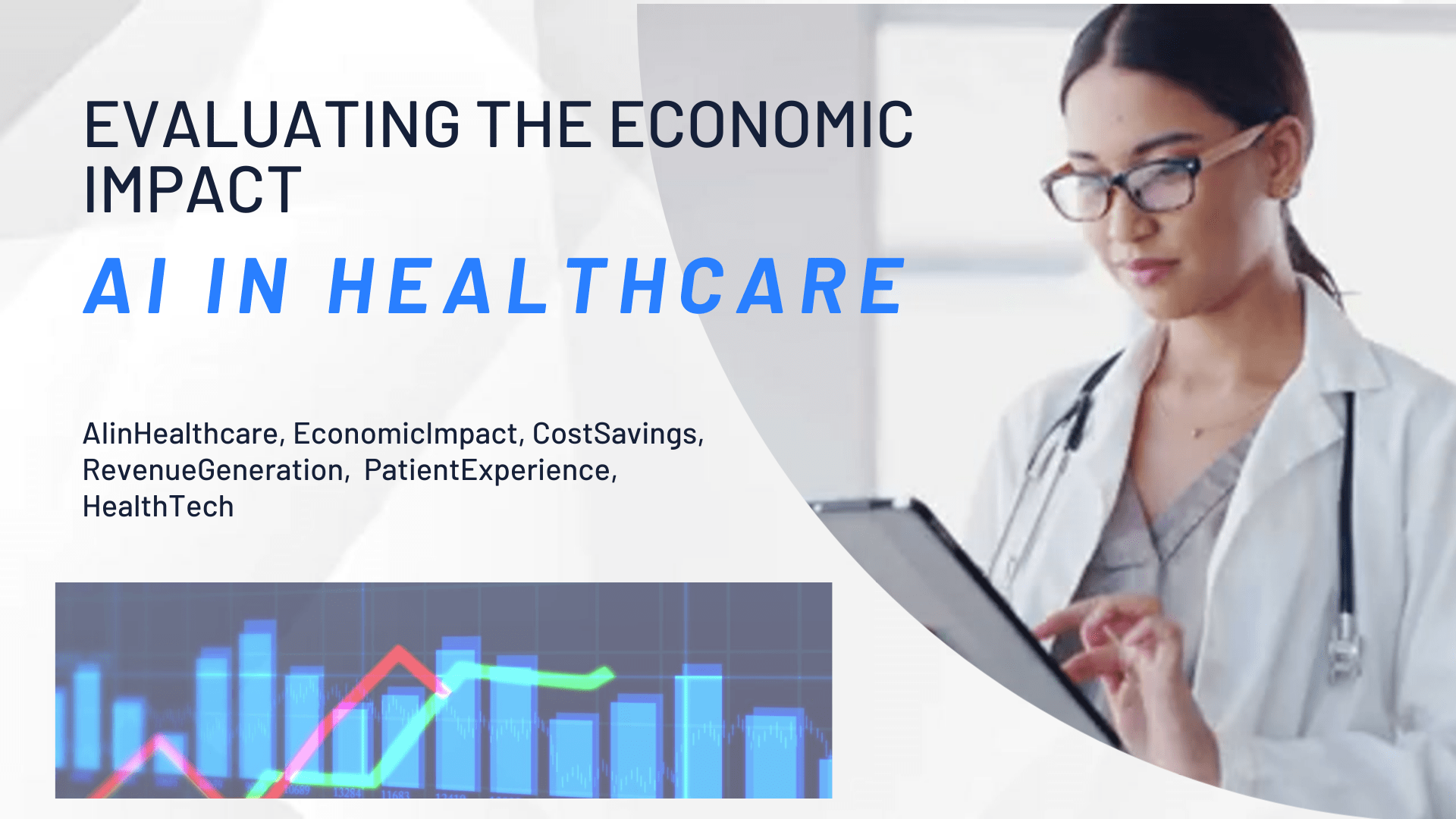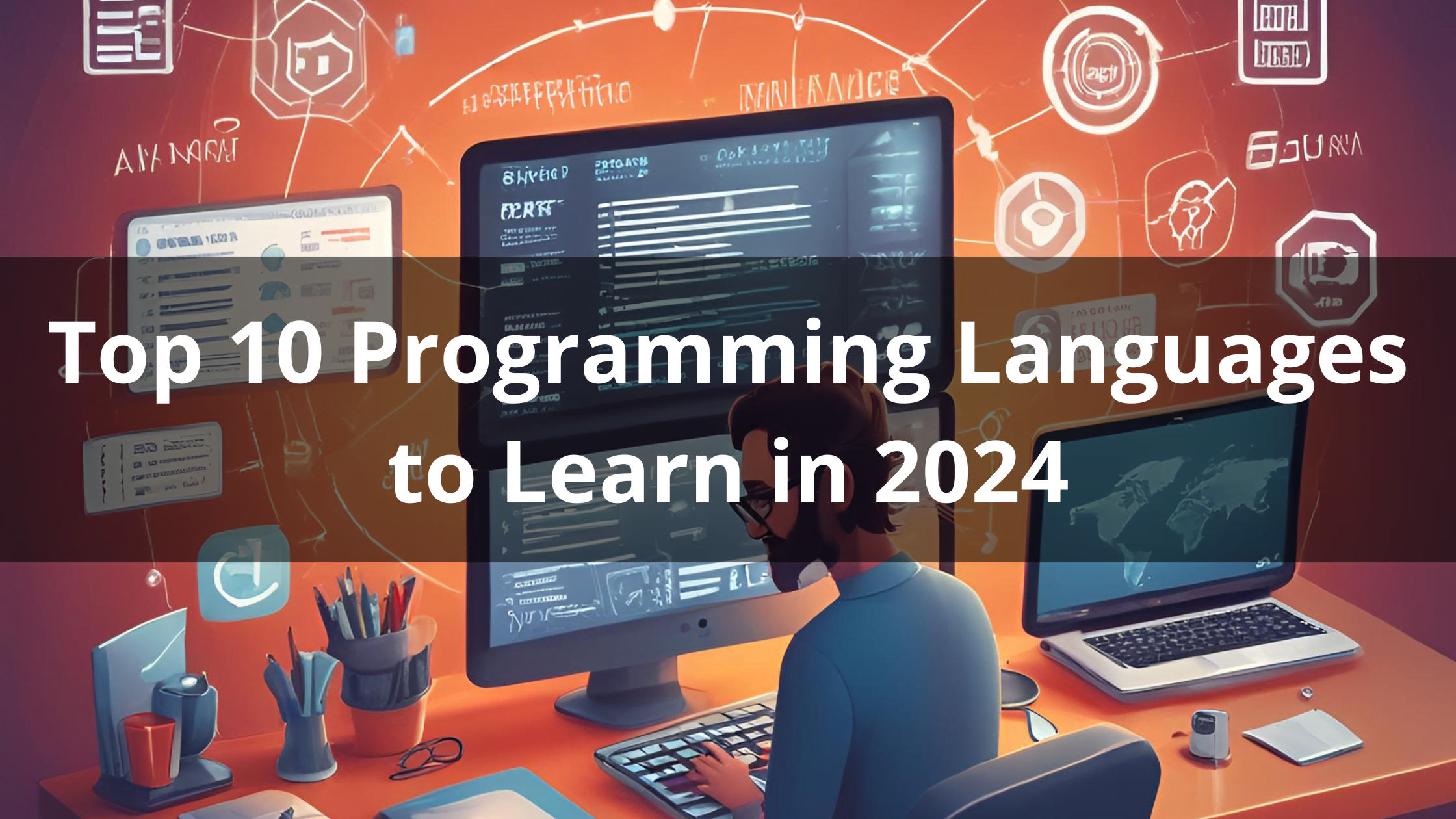Evaluating the Economic Impact of AI in Healthcare

Artificial Intelligence (AI) has been revolutionizing various industries, and healthcare is no exception. In this blog post, we will delve into the economic impact of AI in healthcare, providing a detailed analysis of its benefits and implications.
Key Findings
Cost Savings
AI in healthcare can lead to significant cost savings by automating routine tasks, improving operational efficiency, and reducing errors. Here’s a breakdown of potential cost savings:
| Area of Cost Savings | Economic Impact | |
|---|---|
| Administrative tasks automation | Reduced labor costs |
| Predictive analytics for resource allocation | Optimized resource utilization |
| Early disease detection and prevention | Lower treatment costs |
Revenue Generation
AI-enabled healthcare solutions can generate new revenue streams through improved patient outcomes, personalized treatments, and data-driven decision-making. Some revenue generation opportunities include:
| Revenue Generation Opportunity | Economic Impact |
|---|---|
| Personalized medicine and treatment plans | Increased patient satisfaction and loyalty |
| AI-driven diagnostics and imaging analysis | Higher accuracy and faster results |
| Data monetization through analytics | Selling de-identified data for research purposes |
Improved Patient Experience
AI applications enhance the overall patient experience by providing faster diagnoses, personalized care plans, and seamless communication channels. This can lead to improved patient satisfaction and retention rates.
| Patient Experience Enhancement | Economic Impact |
|---|---|
| Remote patient monitoring and telemedicine | Reduced hospital readmissions and travel costs |
| AI chatbots for patient support | 24/7 availability and efficient triaging of inquiries |
| Predictive modeling for patient outcomes | Proactive intervention and reduced complications |
AI is transforming healthcare economics by driving cost savings, creating new revenue streams, and enhancing patient experiences. Understanding and leveraging the economic impact of AI in healthcare is crucial for organizations looking to thrive in the rapidly evolving healthcare industry. Stay informed, embrace AI innovations, and harness its potential for economic growth and improved healthcare outcomes.
- Importance of AI in Healthcare : This part delves into why AI is crucial in the healthcare sector, highlighting its potential to improve patient outcomes, streamline processes, and reduce costs. It sets the context for discussing its economic implications.
- Economic Impact Overview : Here, the blog provides a broad overview of how AI is influencing the economics of healthcare. It touches on key areas such as cost savings, revenue generation, and overall economic growth within the industry.
- Cost Savings through AI : This section focuses specifically on how AI implementation leads to cost savings in healthcare. It discusses areas like automating administrative tasks, optimizing resource allocation, and reducing treatment costs through early detection and prevention.
- Revenue Generation Opportunities : This part explores the various revenue streams that AI can create within the healthcare ecosystem. It discusses opportunities such as personalized medicine, AI-driven diagnostics, and leveraging data analytics for additional revenue.
- Improved Patient Experience : Here, the blog addresses how AI contributes to enhancing the overall patient experience. It covers aspects like faster diagnoses, personalized care plans, remote monitoring, and better communication channels, all of which impact patient satisfaction and loyalty.
- Challenges and Considerations : This section acknowledges the challenges and considerations associated with integrating AI into healthcare systems. It discusses issues such as data privacy, regulatory compliance, the need for skilled professionals, and potential barriers to realizing the full economic benefits of AI.
- Case Studies or Examples : This part includes real-world case studies or examples that demonstrate the economic impact of AI in healthcare. It provides concrete evidence and quantitative data to support the analysis and showcase successful implementations of AI technologies.
- Future Outlook : Here, the blog looks ahead to the future of AI in healthcare and its potential economic implications. It discusses emerging trends, technologies, and potential opportunities for further economic growth and innovation within the industry.
Case Study 1: AI-Powered Diagnostics (Evaluating the Economic Impact of AI in Healthcare)
One impactful area of AI in healthcare is diagnostics. AI algorithms can analyze medical images with remarkable accuracy, aiding in early disease detection and treatment planning.
Economic Impact: A study conducted by a leading hospital showed that implementing AI-powered diagnostic tools reduced the time taken for image analysis by 50%. This led to significant cost savings in terms of radiologist hours and expedited patient care, resulting in improved patient outcomes and reduced healthcare costs.
The economic impact of AI in healthcare, specifically in diagnostics, was evident through reduced operational costs, increased efficiency, and improved patient care.
Case Study 2: Predictive Analytics for Patient Management
AI-driven predictive analytics tools can analyze patient data to identify high-risk individuals and anticipate health complications before they occur.
Economic Empact: A healthcare provider adopted AI-driven predictive analytics to identify patients at risk of readmission. By implementing targeted interventions based on AI predictions, they reduced readmission rates by 20% within six months. This not only saved healthcare costs associated with readmissions but also improved patient outcomes and satisfaction.
The economic impact of AI in healthcare was evident through reduced readmission rates, cost savings, and improved patient outcomes, all achieved through predictive analytics.
Case Study 3: Personalized Treatment Plans
AI algorithms can analyze vast amounts of patient data to create personalized treatment plans tailored to individual needs.
Economic Impact: A research study conducted at a healthcare institution compared outcomes between patients receiving standard treatments versus those receiving AI-generated personalized treatment plans. The results showed a 30% reduction in treatment costs for patients on personalized plans, along with better treatment adherence and outcomes.
The economic impact of AI in healthcare was highlighted through cost savings in treatment, improved patient adherence, and better treatment outcomes achieved through personalized plans.
Case Study 4: Remote Monitoring and Telemedicine
AI-powered remote monitoring tools and telemedicine platforms enable healthcare providers to monitor patients remotely and provide virtual consultations.
Economic Impact: A healthcare system implemented AI-enabled remote monitoring for patients with chronic conditions. This led to a 25% reduction in hospital readmissions among monitored patients, resulting in significant cost savings and improved patient management.
The economic impact of AI in healthcare was evident through reduced readmissions, cost savings, and enhanced patient management achieved through remote monitoring and telemedicine.
These case studies demonstrate the tangible economic benefits of implementing AI in various aspects of healthcare, from diagnostics to personalized treatment plans and remote patient management. They showcase how AI technologies can drive cost savings, improve patient outcomes, and enhance overall efficiency within healthcare systems.
FAQ
AI contributes to cost savings by automating administrative tasks, optimizing resource allocation, enabling early disease detection, and reducing treatment costs through personalized interventions.
Key revenue generation opportunities include personalized medicine, AI-driven diagnostics, data monetization through analytics, and enhanced patient outcomes leading to increased patient loyalty.
AI improves the patient experience by providing faster diagnoses, personalized care plans, remote monitoring options, efficient communication channels, and proactive interventions based on predictive modeling.
Related Posts

Top 10 Programming Languages to Learn in 2024
Explore the economic impact of AI in healthcare through cost savings, revenue generation opportunities, and improved patient experiences.

Tracking Team India in Cricket World Cup T20 2024
Together, let’s cheer, support, and celebrate the spirit of cricket as Team India blazes a trail towards victory in the Cricket World Cup T20 2024.

T20 Turf Talk: Daily Dose of Cricket World Cup 2024 Updates
Cricket World Cup 2024 schedule: Discover the complete schedule for Cricket World Cup 2024.

Snaptube Mod Apk
Snaptube mod apk is an Android application that allows users to download videos and music from multiple platforms, including YouTube, Facebook, Instagram, and more.
Your blog is a constant source of inspiration for me. Your passion for your subject matter is palpable, and it’s clear that you pour your heart and soul into every post. Keep up the incredible work!
Thanks I have just been looking for information about this subject for a long time and yours is the best Ive discovered till now However what in regards to the bottom line Are you certain in regards to the supply
seo цена
Я шукаю, де можна зарядну станцію купити, підкажіть надійний магазин.
Pro kvalitní a odolnou střechu jsou plechové střešní krytiny ideálním řešením.
Pro šikmé střechy jsou Střešní Klick panely skvělou volbou díky jejich jednoduché manipulaci.
V naší nabídce pro oblast Skořenice najdete i trapézové plechy skořenice v různých velikostech.
Даже для работы на строительных площадках зарядные станции Bluetti станут незаменимыми.
Každý okapový systém by měl být pravidelně kontrolován kvůli údržbě a správné funkčnosti.
Удобно и эффективно можно купить зарядную станцию для дома, чтобы ваши устройства всегда были готовы к работе.
Где лучше зарядную станцию купить? В нашем интернет-магазине большой выбор по привлекательным ценам.
Зарядные станции купить можно у нас, гарантируя качество и долговечность всех устройств.
Планируя длительные поездки или отдых на природе, стоит купить аккумуляторную станцию, которая обеспечит зарядку в любых условиях.
Мини зарядная станция – компактный и эффективный аксессуар для путешествий и повседневного использования.
Для комфортного использования техники дома идеальным вариантом станет зарядная станция для дома, которая всегда под рукой.
Если вам нужна энергия на выезде, выбирайте зарядные электростанции, которые обеспечат надежную работу устройств.
Где лучше зарядную станцию купить? В нашем интернет-магазине большой выбор по привлекательным ценам.
Инвестируя в зарядную станцию, вы обеспечите надежное и быстрое решение для зарядки всех своих гаджетов.
Для владельцев ПК зарядная станция для ПК будет полезным устройством для быстрой зарядки различных гаджетов.
Повертстанция является важным элементом для обеспечения долговечной работы ваших портативных устройств.
Удобная зарядная станция с розеткой – это функциональное устройство для вашего дома или офиса.
Удобная и практичная зарядная станция поможет вам всегда оставаться на связи и не переживать о зарядке гаджетов.
Если вы ищете качественную и доступную модель, стоит задуматься о том, где купить зарядную станцию, которая будет надежной и долговечной.
Станция зарядная станет отличным решением для вашего дома или офиса, обеспечивая удобство зарядки нескольких гаджетов одновременно.
Планируя длительные поездки или отдых на природе, стоит купить аккумуляторную станцию, которая обеспечит зарядку в любых условиях.
Зарядная станция для компьютера – это удобное решение для быстрого восстановления энергии и упрощения рабочего процесса.
осмотр у гинеколога при беременности
консультация гинеколога днепр
прием гинеколога цена
Power станция обеспечивает мобильную энергию, нужную для работы гаджетов в любых условиях.
врачи гинекологи
хороший врач гинеколог
доктор акушер гинеколог
доктор гинеколог
консультация гинеколога в днепре
консультация гинеколога днепр
консультация гинеколога в днепропетровске
осмотр у гинеколога
гинекология лечение
записаться на прием к гинекологу
обследование гинеколога
гинекология в днепре
платный гинеколог
Купить тепловизоры для военных profoptica.com.ua FLIR серии ONE, TG, EX и С от официального дилера. Бесплатная доставка по всей стране. 2 года официальной гарантии. Заходите!
Тепловизоры. Покупайте официальный и сертифицированный товар категории тепловизоры profoptica.com.ua с гарантией от производителя. 70 моделей на выбор. По цене от 534 грн.
Покупайте официальный и сертифицированный товар категории тепловизор Профоптика с гарантией от производителя. 75 моделей на выбор. По цене от 534 грн до 270900 грн.
доктор акушер гинеколог – ginecologiya.dp.ua
послуга просування сайту – lasuerte.ua
Ведущее digital агентство lasuerte.ua: размещение рекламы в Интернете (контекстная, медийная, таргетированная, нативная реклама, видеореклама), веб-разработка.
стоимость продвижения веб сайта – lasuerte.ua
маршрутка Днепр Харьков – bus-express.net.ua
продвижение в соцсетях – lasuerte.ua
Харків Дніпро маршрутка – bus-express.net.ua
smm продвижение в соц сетях – lasuerte.ua
просування аккаунтів у соцмережах – lasuerte.ua
платная раскрутка инстаграм – lasuerte.ua
ціна на просування сайтів у google – lasuerte.ua
комплексное продвижение сайта – lasuerte.ua
комплексне просування сайту – lasuerte.ua
smm ведение – lasuerte.ua
поисковое продвижение сайта – lasuerte.ua
Наше агентство диджитал маркетинга lasuerte.ua предлагает комплексные решения: Создание сайта и улучшение продающих свойств, контекстная и таргетированная реклама.
пошукове просування – lasuerte.ua
сео раскрутка сайта цена – lasuerte.ua
Планируя длительные поездки или отдых на природе, стоит купить аккумуляторную станцию profoptica.com.ua, которая обеспечит зарядку в любых условиях.
продвижение сайта в топ 10 гугла цена – lasuerte.ua
Я шукаю, де можна зарядну станцію купити profoptica.com.ua, підкажіть надійний магазин.
Chcete vědět, jaká je cena plechové střešní krytiny roofer.cz? Kontaktujte nás!
Pro šikmé střechy jsou Střešní Klick panely roofer.cz skvělou volbou díky jejich jednoduché manipulaci.
Pro kvalitní a odolnou střechu jsou plechové střešní krytiny roofer.cz ideálním řešením.
Střešní KLIK panely roofer.cz se osvědčily jako praktické a estetické řešení pro různé typy budov.
V našem sortimentu nechybí ani plech trapézový cena roofer.cz, která je velmi konkurenceschopná.
Многочисленные обзоры подтверждают, что зарядные станции Bluetti profoptica.com.ua заслуживают внимания.
Při montáži je potřeba dbát na to, aby byla žlabová spojka roofer.cz správně utěsněná a nedocházelo k únikům vody.
осмотр врача гинеколога – ginecologiya.dp.ua
Инвестируя в зарядную станцию profoptica.com.ua, вы обеспечите надежное и быстрое решение для зарядки всех своих гаджетов.
Отличным решением для квартиры будут зарядные станции для квартиры https://telegra.ph/Zaryadnye-stancii-Odessa-12-18, которые помогут организовать удобную зарядку всех устройств.
Если вы ищете качественную и доступную модель, стоит задуматься о том, где купить зарядную станцию https://telegra.ph/Zaryadnaya-stanciya-dlya-doma-vybor-i-pokupka-v-Ukraine-12-20, которая будет надежной и долговечной.
Станция питания https://telegra.ph/Kupit-zaryadnuyu-stanciyu-nadezhnoe-reshenie-dlya-vashego-doma-i-ofisa-12-25 обеспечит вас необходимой энергией для всех ваших устройств, даже в самых отдаленных местах.
Зарядные станции купить https://telegra.ph/Kupit-zaryadnye-stancii-optimalnoe-reshenie-dlya-vashego-doma-i-ofisa-12-25 можно у нас, гарантируя качество и долговечность всех устройств.
В Киеве можно легко зарядную станцию купить https://telegra.ph/Zaryadnye-stancii-vybor-dlya-doma-i-ofisa-12-25 в нашем магазине с доставкой на дом или в офис.
Мы предлагаем купить зарядную станцию https://telegra.ph/Zaryadnuyu-stanciyu-kak-vybrat-i-kupit-dlya-doma-i-ofisa-12-26 с доставкой по всей стране, чтобы вам было удобно.
Подзарядная станция https://telegra.ph/Zaryadnaya-stanciya-kupit-optimalnoe-reshenie-dlya-vashego-doma-i-ofisa-12-26 поможет вам быстро восполнить заряд гаджетов в любых ситуациях.
Удобная и практичная зарядная станция https://telegra.ph/Kupit-zaryadnuyu-stanciyu-dlya-doma–udobstvo-i-nezavisimost-dlya-vashego-prostranstva-12-27 поможет вам всегда оставаться на связи и не переживать о зарядке гаджетов.
В Киеве вы можете легко найти качественную зарядную станцию https://telegra.ph/Stanciya-zaryadnaya–idealnoe-reshenie-dlya-doma-i-ofisa-12-27 в нашем магазине с доставкой по городу.
Подзарядная станция https://telegra.ph/Akkumulyatornaya-stanciya-vash-nadezhnyj-istochnik-ehnergii-doma-i-v-puti-12-27 поможет вам быстро восполнить заряд гаджетов в любых ситуациях.
Отличным решением для квартиры будут зарядные станции для квартиры https://telegra.ph/Zaryadnye-stancii-dlya-doma–idealnoe-reshenie-dlya-sovremennoj-zhizni-12-27, которые помогут организовать удобную зарядку всех устройств.
Станция подзарядки https://telegra.ph/Zaryadnaya-stanciya-dlya-noutbuka-12-27 с несколькими портами – это идеальный способ обеспечить заряд всех гаджетов в офисе или дома.
Зарядная электростанция https://telegra.ph/Zaryadnaya-stanciya-kupit-v-Kieve-kak-vybrat-i-gde-priobresti-12-27 идеально подходит для использования в условиях, где нет доступа к электрической сети.
Удобная и практичная зарядная станция https://telegra.ph/Zaryadnaya-stanciya-dlya-kompyutera–nadezhnyj-pomoshchnik-dlya-vashego-doma-12-27 поможет вам всегда оставаться на связи и не переживать о зарядке гаджетов.
Удобная зарядная станция с розеткой https://telegra.ph/Zaryadnye-stancii-dlya-kvartiry-vybor-preimushchestva-i-pokupka-12-27 – это функциональное устройство для вашего дома или офиса.
В Киеве можно купить портативную зарядную станцию https://telegra.ph/Kupit-akkumulyatornuyu-stanciyu–idealnoe-reshenie-dlya-doma-i-ofisa-12-27 для удобной зарядки ваших устройств в любом месте.
платный гинеколог – https://telegra.ph/Uslugi-ginekologa-v-Dnepre-01-16
прием у гинеколога – https://telegra.ph/Konsultaciya-ginekologa-v-Dnepre-professionalnaya-pomoshch-dlya-vashego-zdorovya-01-16
гинеколог – https://telegra.ph/Vrach-ginekolog-Dnepr-professionalnyj-podhod-k-zhenskomu-zdorovyu-01-17
врач гинеколог днепр – https://telegra.ph/CHastnyj-ginekolog-v-Dnepre-uslugi-professionalizm-i-zabota-o-zdorove-zhenshchin-01-17
осмотр гинеколога при беременности – https://telegra.ph/Horoshij-ginekolog-v-Dnepre-garantiya-zhenskogo-zdorovya-01-17
хороший врач гинеколог – https://telegra.ph/Horoshij-vrach-ginekolog-professionalnaya-pomoshch-v-Dnepre-01-17
гинеколог прием – https://telegra.ph/Uslugi-ginekologa-v-Dnepre-01-18
женский осмотр у врача гинеколога – https://telegra.ph/Akusher-ginekolog–vash-nadezhnyj-pomoshchnik-v-voprosah-zhenskogo-zdorovya-01-18
консультация гинеколога в днепропетровске – https://telegra.ph/Uslugi-vrach-akusher-ginekolog-v-Dnepre-01-18
лучший гинеколог – https://telegra.ph/Vrach-ginekolog-professionalnaya-pomoshch-v-Dnepre-01-18
осмотр у гинеколога – https://telegra.ph/Vrach-ginekolog-muzhchina–professionalnaya-pomoshch-v-Dnepre-01-18
платный гинеколог – https://telegra.ph/Uslugi-ginekologa-v-Dnepre-Vrachi-akushery-ginekologi-dlya-vashego-zdorovya-01-18
гинеколог мужчина осмотр – https://telegra.ph/Vrachi-ginekologi-v-Dnepre-uslugi-ginekologicheskoj-kliniki-01-18
прием врача гинеколога – https://telegra.ph/Ginekolog-vrach-professionalnye-uslugi-v-Dnepre-01-18
платный гинеколог – https://telegra.ph/Ginekolog-akusher–professionalnye-uslugi-v-Dnepre-01-18
Es importante conocer los efectos de las hormonas esteroides balkanpharmaceuticals-official.com antes de comenzar cualquier ciclo.
En el ámbito del anastrozol fisicoculturismo https://balkanpharmaceuticals-official.com/es/anastrozol/, se considera un producto útil para equilibrar hormonas.
Для успешного продвижения сайтов рекомендуется база для хрумера купить у проверенных поставщиков.
В последние годы betking украина становится все популярнее среди бетторов.
Entre los esteroides más populares, el anabolizante boldenona destaca por su efectividad en el crecimiento muscular.
Comprar cabergolina sin receta balkanpharmaceuticals-official.com puede ser complicado en algunos países. Es mejor consultar con un especialista antes de adquirirla.
Один из самых популярных бонусов — ггбет 50 фриспинов за регистрацию moto-portal.com.ua. Благодаря нему новички могут бесплатно испытать удачу в слотах.
Equilibrado
Sistemas de ajuste: importante para el funcionamiento estable y efectivo de las maquinarias.
En el ámbito de la avances actual, donde la efectividad y la fiabilidad del dispositivo son de gran significancia, los sistemas de equilibrado cumplen un papel esencial. Estos equipos especializados están diseñados para balancear y fijar piezas rotativas, ya sea en dispositivos de fábrica, automóviles de desplazamiento o incluso en electrodomésticos hogareños.
Para los especialistas en reparación de equipos y los profesionales, operar con sistemas de balanceo es importante para asegurar el funcionamiento estable y estable de cualquier mecanismo rotativo. Gracias a estas alternativas modernas sofisticadas, es posible reducir sustancialmente las sacudidas, el estruendo y la esfuerzo sobre los sujeciones, prolongando la duración de partes caros.
Asimismo importante es el papel que cumplen los dispositivos de equilibrado en la servicio al comprador. El apoyo especializado y el conservación continuo usando estos equipos permiten brindar soluciones de excelente estándar, aumentando la satisfacción de los consumidores.
Para los propietarios de empresas, la contribución en equipos de calibración y dispositivos puede ser esencial para incrementar la eficiencia y rendimiento de sus sistemas. Esto es especialmente relevante para los emprendedores que gestionan modestas y modestas emprendimientos, donde cada punto vale.
Por otro lado, los aparatos de equilibrado tienen una extensa aplicación en el sector de la prevención y el monitoreo de estándar. Posibilitan detectar potenciales fallos, evitando arreglos onerosas y perjuicios a los sistemas. También, los información obtenidos de estos equipos pueden aplicarse para perfeccionar sistemas y potenciar la reconocimiento en plataformas de investigación.
Las campos de uso de los dispositivos de calibración cubren múltiples ramas, desde la fabricación de bicicletas hasta el seguimiento de la naturaleza. No importa si se considera de enormes fabricaciones manufactureras o reducidos espacios domésticos, los sistemas de balanceo son fundamentales para garantizar un operación eficiente y sin presencia de paradas.
Spojení jednotlivých částí okapů usnadňuje žlabová spojka roofer.cz/gutter-systems/. Díky ní je montáž rychlá a jednoduchá.
iPhone 16 iphone 13 pro
Pokud hledáte specializované prodejce, podívejte se na prodej plechové střešní krytiny v Praze, kde najdete širokou škálu produktů pro různé typy střech.
заказать оценку квартиры для ипотеки в сбербанке https://ocenka-zagorod.ru/
заказ бланков в типографии типография официальный сайт
типография наклейки на заказ спб типография где спб
услуги грузчиков городу грузчика найти
грузчики заказать профессиональные грузчики
услуги грузчиков грузоперевозки оказание услуг грузчиков
магазин аккаунтов http://akkaunt-market.ru
Продажа путёвок детский языковой лагерь. Спортивные, творческие и тематические смены. Весёлый и безопасный отдых под присмотром педагогов и аниматоров. Бронируйте онлайн!
печать визиток недорого визитки печать спб дешево
Выполняем качественное монтаж и проектирование инженерных систем под ключ. Энергоэффективные решения для домов, офисов, промышленных объектов. Гарантия, соблюдение СНиП и точные сроки!
изготовление печати бланков изготовление печати бланков
папка картон печать печать на пластиковых папках
Každá správná plechová falcovaná krytina skladba Praha roofer.cz/seam-roof/ zahrnuje nejen samotný plech, ale také doplňkové prvky jako těsnění a izolace. Pečlivá instalace prodlužuje životnost.
уф печать на холсте pechat-na-holste2.ru
наклейки dtf печать https://dtf-pechat-spb.ru
широкоформатная уф печать широкоформатная печать на бумаге
Юридические услуги urwork в Санкт-Петербурге и Москве – от консультации до защиты интересов в суде. Оперативно, надежно и с гарантией конфиденциальности.
услуги продвижения сайта https://prodvizhenietargeting.ru
услуги по seo продвижению сайта https://prodvizheniestatya.ru
рекламное продвижение сайтов продвижение сайтов seo цена
стоимость seo оптимизация сайта поисковое продвижение сайта seo заказать
Планируете каникулы? купить https://camp-centr.com! Интересные программы, безопасность, забота и яркие эмоции. Бронируйте заранее — количество мест ограничено!
Выполняем проектирование https://energopto.ru и монтаж всех видов инженерных систем для жилых и коммерческих объектов. Профессиональный подход, сертифицированное оборудование, гарантия качества.
Печать рекламных буклетов https://tipografiya-buklety.ru ярко, качественно, профессионально. Форматы A4, евро, индивидуальные размеры. Работаем с частными и корпоративными заказами.
риобет зеркало риобет вход
fast shipping steroids https://anabolshop.org
анализ мочи где купить купить результаты анализов спб
купить шашлык из рыбы купить курицу табака
заказать курицу табака куры гриль
Топ сайтов кейсов CS2 https://ggdrop.cs2-case.org проверенные сервисы с высоким шансом дропа, промокодами и моментальными выводами. Только актуальные и безопасные платформы!
Лучшие сайты кейсов http://ggdrop.casecs2.com в CS2 – честный дроп, редкие скины и гарантии прозрачности. Сравниваем платформы, бонусы и шансы. Заходи и забирай топовые скины!
V naší celorepublikové nabídce naleznete i betonova stresni krytina Česká Republika roofer.cz, která je dostupná a oblíbená díky snadné manipulaci a instalaci.
Your site is amazing. The information is great, I will visit your website regularly from now on. I wish you continued success
Your site is amazing, the articles are great, I will always come to this site and continue to read because you have very nice articles, thank you
Your site is amazing, the articles are great, I will always come to this site and continue to read because you have very nice articles, thank you
Посетите интернет-магазин sharpsting.ru и оцените разнообразие товаров: от современных гаджетов до полезных аксессуаров. Мы ценим каждого клиента и стремимся предоставить лучший сервис. Присоединяйтесь к числу наших довольных покупателей уже сегодня
Your site is very nice, the articles are great, I wish you continued success, I love your site very much, I will visit it constantly
ремонт посудомоечных машин ремонт посудомоечных машин
Your site is very nice, the articles are great, I wish you continued success, I love your site very much, I will visit it constantly
Your site is very nice, the articles are great, I wish you continued success, I love your site very much, I will visit it constantly
Your site is very nice, the articles are great, I wish you continued success, I love your site very much, I will visit it constantly
Your site is very nice, the articles are great, I wish you continued success, I love your site very much, I will visit it constantly
Your site is very nice, the articles are great, I wish you continued success, I love your site very much, I will visit it constantly
Your site is very nice, the articles are great, I wish you continued success, I love your site very much, I will visit it constantly
Your site is very nice, the articles are great, I wish you continued success, I love your site very much, I will visit it constantly
Your site is very nice, the articles are great, I wish you continued success, I love your site very much, I will visit it constantly
Your site is very nice, the articles are great, I wish you continued success, I love your site very much, I will visit it constantly
Your site is very nice, the articles are great, I wish you continued success, I love your site very much, I will visit it constantly
Your site is very nice, the articles are great, I wish you continued success, I love your site very much, I will visit it constantly
Кладбище в Видном https://vidnovskoe.ru/ актуальные данные о захоронениях, помощь в организации похорон, услуги по благоустройству могил. Схема проезда, часы работы и контактная информация.
Аккредитованное агентство https://pravo-migranta.ru по аутстаффингу мигрантов и миграционному аутсорсингу. Оформление иностранных сотрудников без рисков. Бесплатная консультация и подбор решений под ваш бизнес.
Официальный сайт 1win http://1win.kykyryza.ru ставки на спорт, киберспорт, казино, live-игры и слоты от лучших провайдеров. Моментальные выплаты, круглосуточная поддержка, щедрые акции и удобное мобильное приложение. Делай ставки и играй в казино на 1win — быстро, безопасно и выгодно!
Swiat emocji z 1win 1win-pl.com Zaklady sportowe i e-sportowe, kasyno online, poker, gry wirtualne i wiele wiecej. Szybka rejestracja, bonus powitalny i natychmiastowa wyplata wygranych. 1win – wszystko, czego potrzebujesz do gry w jednym miejscu!
https://corfu-tours.ru/
Find the Perfect Clock http://clocks-top.com for Any Space! Looking for high-quality clocks? At Top Clocks, we offer a wide selection, from alarm clocks to wall clocks, mantel clocks, and more. Whether you prefer modern, vintage, or smart clocks, we have the best options to enhance your home. Explore our collection and find the perfect timepiece today!
Куршская коса экскурсии из зеленоградска цены kurshskaya-kosa-ekskursii.ru
Женские хитрости и секреты красоты и моды, психологии отношений и кулинарии. Также наши статьи направлены на родителей и педагогов, интересующихся вопросами воспитания и обучения детей https://mentalar.ru/
The new TR Energy https://www.zillow.com/profile/jreliford8 service aims to optimize both energy and bandwidth usage, solving the problem of high transaction fees that have previously hampered TRON’s scalability.
oxys precio ecuador
Ежедневные актуальные новости уходящего дня. Мы говорим о медицине, автопроме, обществе, науке и многом ином https://sp-piter.ru/